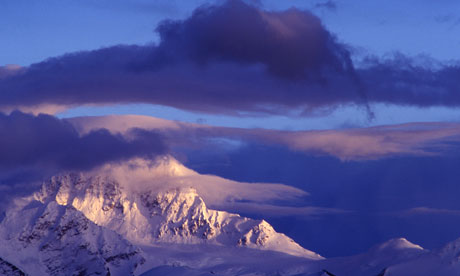
Travel writing – or any writing that seeks to express something beyond the bare bones of a journey, to dramatise as well the mind of the traveller – must struggle with certain dilemmas. The traveller is untethered from their quotidian assumptions, buffeted from one encounter to the next. How, then, to evoke the so-called real, as it gets destabilised by solitary travel, even at times merged with the imaginary? How to write about such indeterminacies without becoming unreadably indeterminate yourself?
In works such as In Siberia, Among the Russians and Behind the Wall, Colin Thubron has teased these dilemmas into rich, poetic prose. His narratives are at times dreamlike, even as he grapples with ideologues or bureaucrats, or roams through half-ruined cities and across crazy, forbidding deserts. In his previous travelogue, Shadow of the Silk Road, Thubron portrayed himself in a series of dream-conversations with the ghost of a silk trader, wrangling across centuries about the purpose even of leaving home. A couple of reviewers balked – it was not realistic (heresy!) – and yet it was a highly original way of reporting from the strange realms of inner experience.
In his latest work, Thubron travels once more in dialogue with ghosts, the mourned dead of his family: mother, father and sister. He writes: "Sometimes journeys begin long before their first step is taken. Mine, without my knowing, starts not long ago, in a hospital ward, as the last of my family dies… I need to leave a sign of their passage." He passes through Nepal into Tibet, heading for Mount Kailas, a sacred place for Buddhists, Hindus, Jains and the followers of Bon. It is a peak that is never climbed, out of deference to the beliefs of worshippers. Pilgrims walk around the base of the mountain, clockwise or anti-clockwise, depending on their ritual allegiances.
"You cannot walk out your grief, I know," Thubron writes, "or absolve yourself of your survival, or bring anyone back. You are left with the desire only that things be not as they are. So you choose somewhere meaningful on the earth's surface, as if planning a secular pilgrimage. Yet the meaning is not your own." He is accompanied by a handful of companions, "a guide, a cook, a horse man", though for a while he is forced by Chinese border protocols to attach himself to a tour group.
"Time is unsteady here," he writes. "Sometimes I am a boy again, trying to grasp the words, Never, never again." Sensuous descriptions and symbolic undercurrents are held in delicate balance. In a "ghost town" along the way – houses "derelict, their rooms guttered beyond, their windows blocked" – Thubron asks a group of Tibetan women what has happened. "The summer market has not worked for two years, they say, banned by the Chinese… Everything has been transferred to the modern zone." At a decaying monastery, a "young and frightened" monk opens the door and shows him a series of "cracked plaster" statues.
In the Amitabha valley, Thubron sees Mount Kailas hanging above, "close and violent", "the whole western face… slung into massive eaves of black rock, tiered one upon the next like a gigantic pagoda". As he approaches the base, "unseen spirits are saluted by multiplying cairns and rock-carved mantras… Iced and rotted clothes lie… strewn over the surrounding rocks" – offerings to Yama, the Buddhist god of death. Mountaineers sometimes report that at high altitudes they feel a presence behind them, a shadow that vanishes when they turn their heads. Stricken by "breathless fatigue", Thubron imagines someone walking ahead of him. Past and present mingle as he struggles past heaps of rags, gulping down cold, weakened air: "I am only 19 and I am mourning, selfishly, the person you would have been for me. For a while your voice is playful beside me. We are approaching 18,000 feet. Am I all right?"
There is no grand epiphany, head bowed before the ancient rock. Thubron is never mawkish. This relatively slender volume, which might have been nothing more than a dashed-off travelogue by an established name, reveals itself as daring and brilliant. Thubron has crafted a book which beautifully describes one man's experience of loss, and familial love, and even the state of mortal indeterminacy itself – how we all keep striving onwards, with the dead in our memories, consoled and bewildered by turns, the sun on our faces, and the birds crying above.

